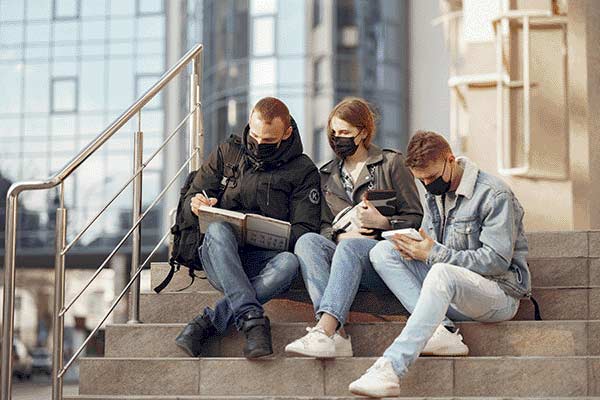Common question
Why is it recommended to wear a mask during COVID-19?
SARS-CoV-2 infection is transmitted predominately by respiratory droplets generated when people cough, sneeze, sing, talk, or breathe. CDC recommends community use of masks, specifically non-valved multi-layer cloth masks, to prevent transmission of SARS-CoV-2. Masks are primarily intended to reduce the emission of virus-laden droplets (“source control”), which is especially relevant for asymptomatic or presymptomatic infected wearers who feel well and may be unaware of their infectiousness to others, and who are estimated to account for more than 50% of transmissions.1,2 Masks also help reduce inhalation of these droplets by the wearer (“filtration for personal protection”). The community benefit of masking for SARS-CoV-2 control is due to the combination of these effects; individual prevention benefit increases with increasing numbers of people using masks consistently and correctly.


